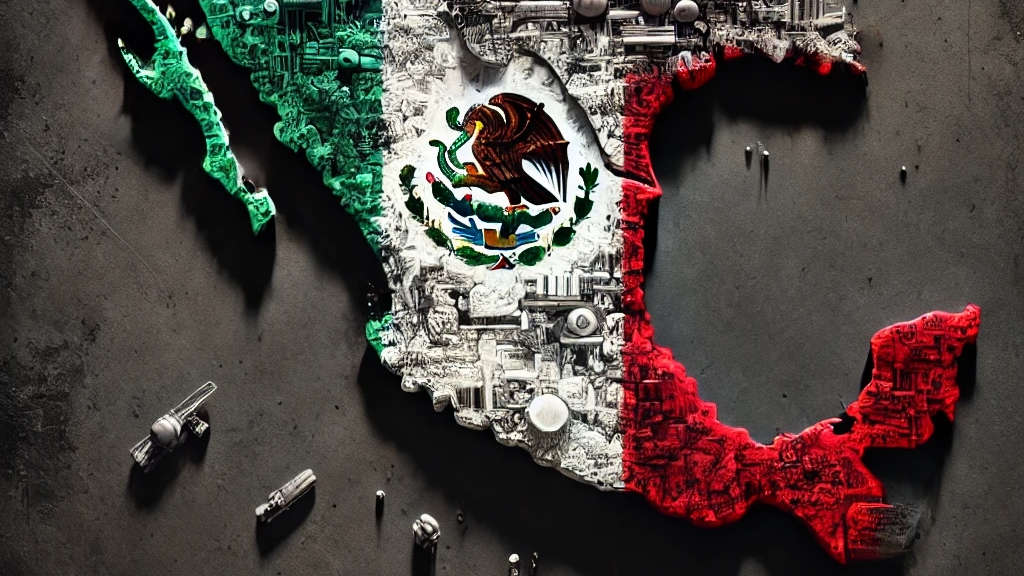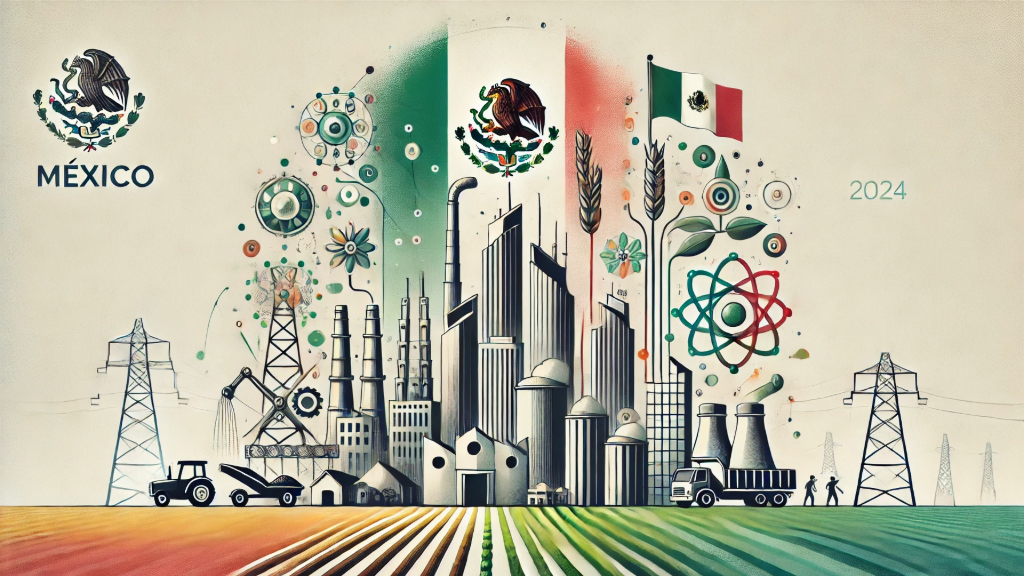Violence impacts the growth of the country's economy

Mexico faces significant challenges to its economic growth due to violence, which according to the IMF has a profound impact on its macroeconomic development.
The International Monetary Fund highlighted at a press conference in Washington the relationship between violence and economic growth, indicating that a reduction in the homicide rate in the region could increase growth by half a percentage point per year for a decade. These estimates, while preliminary, suggest that combating violence is critical not only for social stability, but also for economic momentum.
In its most recent report, the IMF has lowered GDP growth expectations for Mexico in 2024 and 2025, attributing this drop to the slowdown in exports to the United States and a restrictive monetary policy that has limited expansion.
Although an expansionary fiscal policy has been implemented, the IMF warns that a lack of adequate infrastructure and energy bottlenecks are barriers preventing Mexico from fully capitalizing on strategic opportunities such as the nearshoringThis is a trend that could attract new investments to the country and consolidate it as an important hub manufacturing in North America.
Violence and weak rule of law represent a constant threat that reduces the competitiveness of the Mexican market by raising security costs and generating uncertainty among investors.
Although there are resilient sectors, the lack of a secure and reliable environment limits the interest and confidence of those seeking new opportunities in the country. Nevertheless, the IMF highlights significant strengths in Mexico, such as its relatively diversified economy and strategic geographic position.
The proximity to the U.S. market and the integration within the T-MEC are aspects that open great opportunities for the country if it manages to improve its infrastructure and reduce regulatory and security obstacles. These geographic and commercial conditions are a valuable resource for promoting the nearshoringThe company's operations in the region have been developed, provided that the internal problems that hinder their utilization are solved.
Among the IMF's most important recommendations is the need to strengthen the rule of law and combat corruption, two urgent priorities to improve competitiveness and attract sustained investment.
Corruption and weaknesses in the administration of justice not only hinder growth, but also encourage practices that erode equity and trust in institutions. The IMF also recommends increasing the mobilization of non-oil revenues in order to sustain spending in critical sectors such as health, education and infrastructure. This diversification of fiscal sources represents a key opportunity to reduce dependence on the energy sector, especially in a context where the oil market presents risks and fluctuations.
The 2025 federal budget is emerging as a crucial instrument to achieve medium-term fiscal consolidation, a condition that the IMF considers essential to maintain economic sustainability. The agency suggests the need for a credible consolidation plan that mobilizes new revenues and prioritizes efficiency in public spending. Although the Mexican government has implemented expansionary policies, the IMF warns that fiscal adjustment, together with a weaker external environment, will affect projected growth in the coming years.
Mexico is in a position where, despite the challenges, it has a unique opportunity to consolidate itself as an attractive destination in global supply chains, especially within the manufacturing sector. However, to take advantage of this opportunity, the country needs to implement reforms that strengthen the rule of law and generate a more secure and competitive environment. Although the transformation process may be complex and challenging, the long-term benefits could be immense, especially in a context of global slowdown where economies that can offer stability and efficiency will be better positioned.
Inflation expectations, which the IMF expects to stand at 3.2 % by the end of 2025, reflect the expectation of a gradual easing of the monetary stance. This could, in turn, stimulate consumption and improve the country's business environment, although the impact of a restrictive monetary policy will remain present in the short term. Controlled inflation is a key strength that can improve consumer confidence and economic predictability, two elements that the market needs to recover and grow.
Mexico has human and natural resources that represent competitive advantages, but it must address threats stemming from insecurity, corruption and weak rule of law so that these strengths can have a real impact on economic growth. The IMF report highlights not only the challenges, but also the opportunities for Mexico to establish a solid foundation for development if it takes concrete actions to transform its institutional framework and foster a reliable and attractive investment environment.
Collaboration: Editorial Auge.





